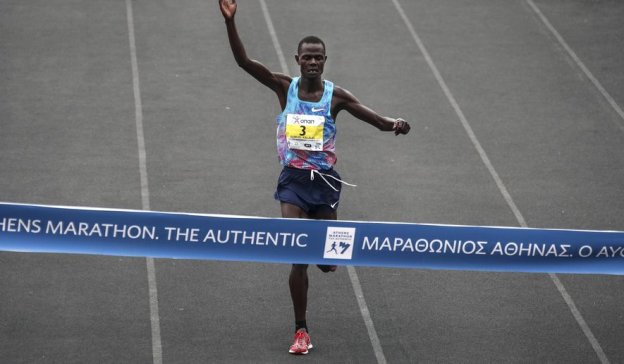Kenyan runners have been some of the most dominant endurance and ultra-endurance athletes in the world for the past few decades. In a development that will shock absolutely no one with any familiarity with elite sport, Kenyan athletes apparently love their performance-enhancing drugs (PEDs).
The International Association of Athletics Athletic Integrity Unit (AIU) announced this week that it has provisionally suspended three Kenyan athlete in the past ten days alone. The three Kenyan athletes to fail anti-doping tests include Samuel Kalalei, Boniface Mweresa and Lucy Kabuu.
Marathoner Kalalei won the 2017 Athens Marathon in November 2017. The 24-year old Kalalei tested positive for erythropoeitin (EPO) on June 4, 2018.
Sprinter Mweresa placed second in the 400-meter event and the 4×100-meters at the 2015 African Games. Mweresa tested positive for an unspecified banned substances at the 2018 Kenya Defence Forces Championships in Nairobi on June 6, 2018.
Distance runner Kabuu won the 2018 Milan Marathon in April 2018 and the 2018 Hong Kong Marathon in February 2018. Kabuu tested positive for morphine in a urine sample collected during the former event.
It is no surprise that anti-doping authorities are finding widespread use of prohibited PEDs in Kenyan athletics. Contrary to popular perception, this has nothing to do with Kenya. The use of steroids, EPO and/or other PEDs is widespread across elite sports at all levels around the world. The seemingly high number of Kenyan athletes that has turned up recently can largely be attributed to the fact that Kenya (and other East African countries such as Ethiopia) have been “targeted” by anti-doping authorities .
Tennis superstar Serena Williams recently expressed outrage at the fact that she was tested more frequently than her competitors. She called it discrimination which is exactly what it was. Anti-doping authorities call it “targeted testing”. Targeted testing is merely a fancy, socially-acceptable way of justifying discrimination against certain athletes and certain countries.
Given that doping is widespread in all sports around the world, it makes sense that those athletes and countries which are targeted for more testing will see an increase in the number of failed drug tests. Unfortunately, this self-confirmation bias is used by anti-doping authorities to justify targeted and discriminatory testing procedures.
The bottom line is that the chances of an athlete getting caught increase with the greater frequency of targeted testing. This is unfortunate for countries like Kenya, Ethiopia and Russia who have been singled out as being plagued by rampant doping. Doping is very likely just as rampant in most other countries but is less likely to be detected since those countries have not provoked the ire of anti-doping authorities.

